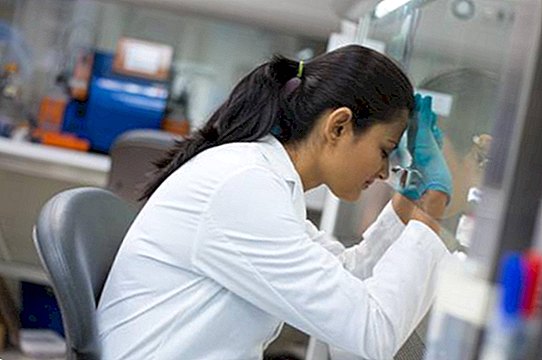Dangerous trend: More and more young people are suffering from perfectionism

It's hard for me to admit that. When I wrote my first papers with grades at school, I was one of those girls who hated everyone. One of those people who say right after work that they have a 5, and then they get a 1 or 2 (but only for the first few jobs, I swear).
Today I know why that? at least in my case? lay: I was pathologically perfectionist as a child. After work, when everyone compared their results and I realized that I had not done EVERYTHING "right", I sincerely and heartily believed that I had failed all along. I thought I absolutely needed to have zero errors, and even a small mistake was so dramatic for me that I just could not imagine getting a good censorship.
Of course, I learned relatively quickly in school to better judge how many mistakes I can allow in class work. But screw down my claims to myself? I still work on that today.
Why perfectionism is not worthwhile
From experience, I know how stressful perfectionism is. It's so exhausting to always strive for the unattainable. Not to be happy about what you have achieved or achieved. Because others may have achieved more? or you would have to do more, damn it! Why did not you work hard anymore? Why did not you think better ...?
On the other hand, perfectionism can even paralyze us. If we are so afraid of making mistakes that we would rather do nothing than do something wrong. Or not make a decision as one that is not optimal.
What I mean by that: Perfectionism is not only bad for self-esteem? he does not even pay!
Long-term study on perfectionism? alarming results
Nevertheless, young people seem to be getting more and more perfectionist, according to a study by the American Psychological Association. The researchers evaluated data from surveys of more than 40,000 students conducted between 1989 and 2016 in the United States, Canada and the UK.
The surveys aim to classify the subjects on a "perfectionism" scale, more precisely on three perfectionism scales: one that measures the perfectionism directed against ourselves, that is, one's own demands on us; one that measures the perceived demands that others place on us; and a scale that reflects our demands on others. The second type of perfectionism, in which we feel others have high expectations of us, is the most dangerous for psyche and self-esteem, the researchers say.
In all three cases, the researchers measured a significant increase. Thus self-directed perfectionism has increased on average by 10 percent, the alien-self-directed by 33 percent and the self-alienated by 16 percent.
Possible explanations: social media and capitalism
Of course, we now expect nothing less than an explanation from the scientists. And of course you want to deliver them too? and have at least several plausible-sounding approaches.
1. Social Media
One approach pushes the social media channels the buck. When we hang out on Facebook and Instagram, we see hundreds of posts from other people we compare with automatically. The problem: Mostly people post the positive sides of themselves and their lives, show their successes, how beautiful their lunch looks, and let us share their great travel experiences. Rarely do we see on Instagram how people fail. Rarely does a post office show how many times someone stumbled, how hard someone had to fight to reach a goal with little effort.
Yes, there are many people who use social media to share their struggles with others. But if we put together all the social media content, does eating on the web look a lot more appealing than on our plate? and so our social media-driven perception could unduly increase our demands on our real life.
2. Capitalism and meritocracy
A second explanation for the increased perfectionism see the researchers in the development of the free market economy and the associated increasing competitive and pressure in terms of education and career. The "The Cut" website also cites journalist and author Malcolm Harris, who explores the influences of "Kids these days: human capital and the making of millennials" work on adolescents today.
Harris says, "When the middle class breaks away, it becomes much more important at which end of the income spectrum you land." In fact, experts have been alarming for years that the gap between material poverty and wealth is growing in industrialized nations such as Germany and the United States, with middle-class people more likely to slip into poverty than prosperity. This can lead to the feeling that average benefits are no longer sufficient, so as not to constantly have to balance on the sharp edge of the subsistence level. As with my feeling with the class work: If it is not enough for a 1, there's a 6.
The researchers assume that the increased perfectionism has contributed to the spread of mental illnesses such as eating disorders and depression during the past decades.
How we can protect ourselves from perfectionism
Unfortunately, we can not turn society overnight from a performance to a feel-good society? what to do?
We have to take care of ourselves again! We should make it clear once and for all that we are human, not machines. That we do not have to work to the point. That perfectionists are doomed to fail. There will always be someone who will make it better, more accurate, more beautiful or faster than you. But nobody does it exactly your way.
There is a discipline in life in which we are better than everyone else. This discipline is our greatest strength and we should focus on it. We are probably even in the world to compete in this discipline. Which discipline is that? Being ourselves. This is not perfect? but just right!










